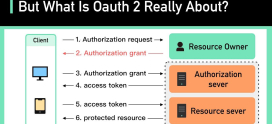
The Importance of Hosting Contracts in E-commerce Legal Compliance
Starting an e-commerce venture can feel like stepping into a vast ocean, filled with opportunities and challenges. You’ve likely encountered various aspects of this journey—from finding the right products to understanding your target audience. But have you ever paused to consider the legal landscape? It’s overwhelming, isn’t it? Many entrepreneurs are so focused on building beautiful websites and marketing strategies that they overlook the crucial need for hosting contracts. You might be asking yourself, “Why do I need to worry about contracts when there’s so much to do?” Well, you’re not alone in these thoughts, and there’s much to explore.
Legal compliance is vital, and it plays a significant role in safeguarding your business. Hosting contracts may sound tedious, but they are your safety net in the digital world. Imagine going on a trip without travel insurance, where one mishap could ruin everything. Similarly, without proper contracts in place, you could be putting your entire business at risk. In this article, we will dive deep into the critical importance of hosting contracts in e-commerce legal compliance and provide actionable insights to help you feel more secure in your online endeavors.
Understanding Hosting Contracts
What is a Hosting Contract? A hosting contract is an agreement between a website owner and a hosting service provider. It outlines the terms and conditions under which the provider will manage the hosting services, ensuring both parties understand their responsibilities.
Why Are Hosting Contracts Important?
Many new e-commerce owners might not grasp the gravity of a hosting contract. Let’s break it down:
- Protection of Rights: Hosting contracts clearly define the rights and obligations of both parties. This ensures that as a business owner, your rights are protected regarding your data and website.
- Governing Laws: Contracts specify which laws govern the agreement. This is crucial if any legal disputes arise.
- Limiting Liability: A well-defined contract helps limit your liability, ensuring you aren’t held accountable for issues that could arise from the hosting service’s negligence.
The Basics of E-commerce Legal Compliance
Understanding legal compliance is like learning the rules of the road before driving. You wouldn’t want to hit the streets without knowing traffic signals, right? The same goes for running an online business. Legal compliance encompasses various laws and regulations governing how businesses operate, especially in the e-commerce space.
Key Areas of Legal Compliance in E-commerce
There are several critical areas to consider:
- Consumer Protection Laws: These laws ensure fair treatment of customers—think return policies and privacy regulations.
- Data Protection Regulations: With customers’ personal information at risk, understanding GDPR or CCPA is essential for developing trust.
- Intellectual Property Rights: Protecting your brand, trademarks, and content should be a priority to avoid potential infringements.
How Hosting Contracts Fit In
Now that you understand the importance of legal compliance, where do hosting contracts fit in? A hosting contract is not merely paperwork; it’s a critical document that ensures compliance with many of the aforementioned areas.
Data Security and Responsibility
In the digital economy, your customers’ trust hinges on how you handle their data. Hosting contracts typically have clauses related to data security. They stipulate the hosting provider’s responsibilities in protecting your website from breaches and hacks.
Uptime Guarantee
When customers visit your site, they expect it to be live and functional. A hosting contract usually includes uptime guarantees, giving you a clear expectation of availability. If your hosting service fails to meet these standards, you could hold them accountable for lost sales.
Choosing the Right Hosting Provider
When you consider hosting your e-commerce site, think of it as choosing the right partner for a dance. The rhythm must match for a successful performance. So, how do you select the right hosting provider? Here are some pointers:
- Reputation: Look for hosting providers like DarazHost that have glowing reviews and a reliable track record.
- Security Features: Ensure they offer robust security features like SSL certificates, firewalls, and backup solutions.
- Customer Support: Just like a dance partner should be responsive, the same goes for your hosting provider. 24/7 support is crucial.
Key Elements of a Strong Hosting Contract
When drafting or reviewing a hosting contract, make sure it includes these essential elements:
Scope of Services
Your contract should detail the specific services the provider will offer. Will they manage updates? What about technical support? Addressing these aspects upfront prevents misunderstandings later.
Pricing and Payment Terms
Discuss how much you will pay and the frequency of payments—monthly, annually, etc. Any additional fees for exceeding bandwidth or storage limits should also be outlined, so you’re not caught off guard.
Termination Clauses
Understand the terms under which either party can terminate the contract. Knowing the exit strategy is as vital as starting the partnership.
Dispute Resolution
In the unfortunate event of a disagreement, the contract should mention how disputes will be resolved, either through mediation or arbitration.
What If Things Go Wrong?
No one wants to think about the worst-case scenario, but it’s wise to prepare for it. In the world of e-commerce, things can go south quickly—be it through data breaches, downtime, or legal issues. Having a solid hosting contract can help mitigate many risks. It allows you to address concerns swiftly, providing you with a legal foundation to act upon.
Compliance with International E-commerce Laws
If you’re selling internationally, additional complexities arise. Different countries have various laws governing e-commerce. Make sure your hosting contract is compliant with international regulations regarding data protection, consumer rights, and online transactions.
Future-Proofing Your E-commerce Business
Just like a gardener tends to their plants for future growth, you need to lay the groundwork for your e-commerce business. A solid hosting contract today can save you a lot of trouble down the road. Regularly reviewing and updating your contract can help you adapt to changing laws and technologies.
Final Thoughts
Legal compliance in e-commerce can appear daunting, but addressing it head-on with hosting contracts makes the journey smoother. Think of it as wearing a life jacket while sailing—you’ll feel more secure as you navigate the turbulent waters of online business.
Next Steps
Take some time today to review your hosting agreement or research potential providers. Ensure you understand every part of your contract, and never hesitate to consult a legal expert to clarify any complex aspects.
FAQs
- What should I include in a hosting contract? Key elements include scope of services, pricing, payment terms, and termination clauses.
- How can I ensure legal compliance in my e-commerce business? Familiarize yourself with relevant laws and incorporate them into your operations and contracts.
- What happens if a hosting service breaches a contract? You can pursue legal action based on the agreed-upon dispute resolution methods in your contract.
- Are hosting contracts standard for all providers? While many elements are common, contracts can vary based on the services offered and the specific provider.
- How often should I review my hosting contract? It’s advisable to review your contract annually or whenever significant changes occur in your business or legal landscape.
By taking these steps, you’ll cultivate a more resilient and legally compliant e-commerce business, ensuring you’re prepared for both challenges and opportunities that lie ahead.









